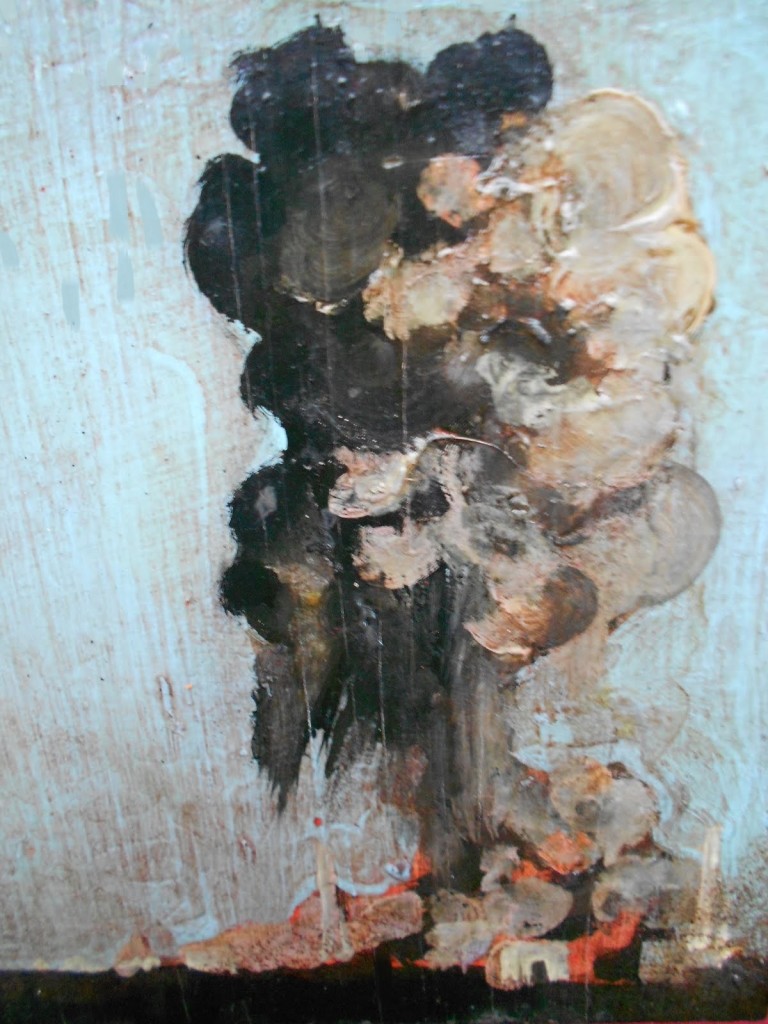Arguing
It’s pouring outside
and I keep digging
my teeth into her shoulder,
the tempo of a heat storm
thrumming, coming closer
with each cruel gust pushing
open the window,
until the wind kicks
on the needle of the record player
like a switchblade,
and you throw your hands
up. I kind of want
you to hit me.
Then, a blackout. Sirens.
We find dry shelter
in the bathroom,
the pipes securing us,
holding us in.
All night Carole King
drones from the record player
and water washes
through the pipes
like beans falling
through a rain stick.
I dream that we are mice
moving through the rifts in the wood,
scampering away from the flood.
_________________
Meaghan Quinn
Review by donnarkevic
In “Arguing,” by Meaghan Quinn, the poet uses several poetic devices to successfully craft the poem. Her use of simile and metaphor are effective: Until the wind kicks/on the needle of the record player/like a switchblade. The use of this simile brings to mind the quickness of the onset of an argument and of its possible deadly consequences to the relationship. Water washes . . . like beans falling/through a rain stick, brings a great sound to the imagery. Arguments can be a noisy affair, and the simile helps. I dream that we are mice, is an effective metaphor, bringing to mind that rats are the first to abandon a sinking ship. The relationship is sinking, and the couple splits, going their separate ways.
Without sounding as though the author used thesaurus words, word choice is another poetic device used well by Quinn: tempo, thrumming,” switchblade, sirens, (actual sirens or the Sirens calling Ulysses to his doom) drones, rifts, and scampering. Non-typical words tend to slow the reader down, to force the reader to appreciate the narrative in “Arguing.”
There are effective uses of alliteration: thrumming, coming closer, water washes, moving through, etc. Read the poem aloud. Hear how it flows like beans falling through a rain stick.
Quinn also makes good use of line breaks, e.g.
. . . I keep digging
my teeth into her shoulder.
The reader gets a good sense of digging into the argument and then the physical, perhaps metaphorical, digging/ my teeth into her shoulder.
And again:
. . . water washes
through the pipes
like beans falling
through a rain stick.”
The water may be washing the couples’ troubles away. But then the reader understands water travels through the pipe work of the relationship. In addition, we have an added sound, more than that of the water through pipes, but like beans falling through a rain stick, an onomatopoeia drowning rational thought.
One line break that would have improved the poem:
I kind of want (you)
to hit me.
Moving “you” to the preceding line would have made an interesting contradiction, i.e., wanting you (sexually), and the next line throwing that out the window with the desire for violence, to hit me.
Read Quinn’s other poems, “Memento,” and “Leaving,” and you will find equal attention to craft.

